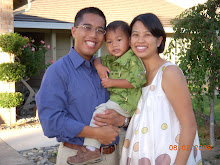One of the expressions used in the Army is the phrase, "down range", which simply means being out there in the trenches where the fighting is happening, what some may refer to as the "front lines". Compared to many other bases in Afghanistan, our base is considered one that is "down range". Well, there are pluses and minuses with that. The plus side is the fact that the base is usually small (150-200 people) and the general personality of the populace is one that is laid back. The big minus is that troops intended for our base often get snatched up by units that are, for lack of a better phrase, "up range", therefore leaving us stretched for manpower . The administrative battle to ensure that the 3 medics that are leaving me are replaced with not 1, not 2, but 3 living, breathing, competent medics was a battle that I was not intending to lose.
To make a long story short and after many phone calls and e-mails to higher headquarters later. The rumors and the talk of the possibility of getting replacement medics turned into the real thing.
Well, here is a picture of my new team of young, eager medics. Together we will be covering the medical care of the US troops as well as the medical mentoring of the Afghan National Army troops. The medics bring a lot of skill sets with them as some have a wealth of experience in ambulance/inpatient care, pediatrics, tactical medicine, nursing, computer science, teaching, and even funeral directing (that probably covers most of our bases!). I think we have a pretty strong, well-rounded medical team. It will be fun to treat them like my young medical students...actually, although many of them don't have a college degree, their clinical medical knowledge and experiences far outweigh the experiences of a typical 1st or even 2nd year medical student.
To break them in, I went ahead and set up some training scenarios for my new medics. Surgical lubricant and Raspberry Crystal Light can really bring some of these scenarios to life! It was fun to review some of the basics in being a combat lifesaver. In the picture above is Sgt Hodgett and SSgt Farris working on a patient with an amputated left arm. Sorry it's a little graphic but that makes the training fun!
Can't Wait to Be Home...
Wednesday, January 7, 2009
Subscribe to:
Post Comments (Atom)



1 comment:
the pic was a gagger at 1st glance... then i realized the blood looked kinda "punchy" ;) way to make learning fun, Dr. Mercado!
Post a Comment